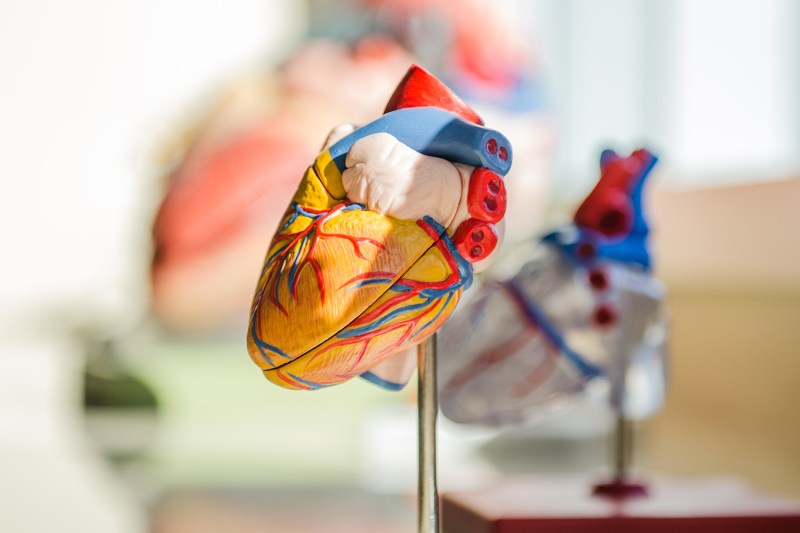Cancer conjures fear, yet many people remain acutely unaware of the silent killer that is cardiovascular disease. It quietly waits and often strikes without warning. Few families are untouched by this disease, including my own.
My family was affected by heart disease long before I was born. My paternal grandfather died in 1961. My dad was only fifteen at the time. Granted, my grandfather did smoke and worked in a highly stressful job that involved long shifts in an iron foundry. He created molds and then poured the molten iron for cast iron cookware and other household items. Each time, while in my own kitchen, I reach for one of the skillets he made, I’m reminded of the grandfather I never met.
“Cardiovascular disease kills more people than the next seven causes of death combined.”
My maternal grandfather, a World War II veteran, died from a major heart attack while sleeping. I also have no memory of him. I was just two years old when he passed away. Again, he had a much different lifestyle and health profile that I do; he smoked and was diabetic. Both factors undoubtedly contributed to his early death.
Both of my grandfathers died in their early fifties and I’ve often wondered if that fact weighed heavy on my dad prior to becoming a grandfather himself. Fortunately, my dad is still alive and has seen most of his grandchildren graduate from high school, some from college, and one join the Air Force. He has been afforded the opportunities that his father was denied. My father has always put a huge emphasis on family time. I have a feeling his loss at an early age has given him a deeper appreciation of the time he has.

My wife has also been impacted by heart disease for much of her life. At 12 years old, her mother had her first heart episode. She vividly remembers seeing her mother being taken away in an ambulance, but not understanding words like angioplasty. During her senior year of high school, her mother underwent her first heart bypass surgery. She continued to deal with heart-related issues throughout our marriage. She also smoked for much of her life and did not lead an active lifestyle. She had her second bypass surgery while visiting us over the holidays. My wife watched her mother fight this disease throughout the majority of her adult life. In 2018, she lost her battle and passed away at the age of 69.
My family history may resonate with others who read this story. For an expert view, I’ve assembled input from medical experts who have weighed in on the science of heart disease and how this disease is largely preventable.
The Experts
John A. Osborne, M.D., Ph.D, FACC, FNLA: Dr. Osborne is a Harvard-trained MD, PhD (in Cardiovascular Physiology) Cardiologist-Lipidologist. He also has two decades of experience in clinical trials and in running a large preventative cardiology and lipid practice. He is currently studying at the London School of Economics for a Master’s Degree in Cardiovascular Health Outcomes, Economics, and Management.
Salim S. Virani, M.D., Ph.D, FACC, FAHA: Dr. Virani is a tenured Professor in Cardiology and Cardiovascular Research Sections at Baylor College of Medicine in Houston, Texas. He is also an investigator in the Health Policy, Quality, and Informatics Program at the Michael E. DeBakey VA HSR&D Center of Innovation in Houston, Texas.
The Numbers
“Cardiovascular disease kills more people than the next seven causes of death combined,” says Dr. Osbourne. Some other staggering facts provided by Dr. Osborne include:
- 40% of us will die of heart-related disease.
- 75%-80% of people with diabetes will die of cardiovascular disease.
- In half of men and two-thirds of women, the first symptom is death (no warning).
- More women with breast cancer die of heart disease than breast cancer.
“It’s estimated that nearly 18 million people (worldwide) die annually from cardiovascular disease,” stated Dr. Virani. “That is similar to losing the population of Syria each year.”
The Bright Side
While the above statistics may seem daunting, both Dr. Osborne and Dr. Virani believe that heart disease can be largely preventable with a few lifestyle changes. “The Mediterranean diet has shown some of the best research in reducing risks of heart disease,” says Dr. Osborne.

“A heart-healthy diet can also reduce the risk of developing diabetes, can help reduce the risk of developing some forms of cancer, improve quality of life, and can help with some forms of depression,” adds Dr. Virani.
For simplicity, Dr. Virani also broke it down to the ABCs (actually, ABCDEs) of heart health.
- A: Assess the 10-year risk of heart attack or stroke
- B: Blood pressure
- C: Cholesterol and cigarette smoking
- D: Diabetes
- E: Exercise
“Just as there are screening tools for some cancers, there is now a screening that can help predict risk of heart disease,” says Dr. Osborne. “A coronary artery calcium test (CAC) utilizes a CT scan to gauge the buildup of plaque within the vessels supplying blood to the heart. This measurement can give a score that can help doctors assess an individual’s risk for heart disease.”
My wife and I have both chosen to live healthy, active lifestyles which includes not smoking, monitoring our cholesterol levels, and maintaining a healthy blood pressure. We know what a cruel impact that heart disease can have on the body and how it affects the family members of those who battle it. While not all heart-related illnesses can be prevented through these choices, a large number can be mitigated. We are thankful to live in a time where much more is understood about heart disease prevention and all of the additional tools that are available to help us avoid the fate of our family members. And while we can’t bring back those already lost, we can work to keep not only ourselves healthy but to also educate the next generation of our family. This is a disease that doesn’t have to be inherited.
For more information, the American Heart Association is a great resource for additional research findings about heart disease, heart-healthy eating, and other ways to reduce your risk of becoming a victim of this No. 1 killer.


